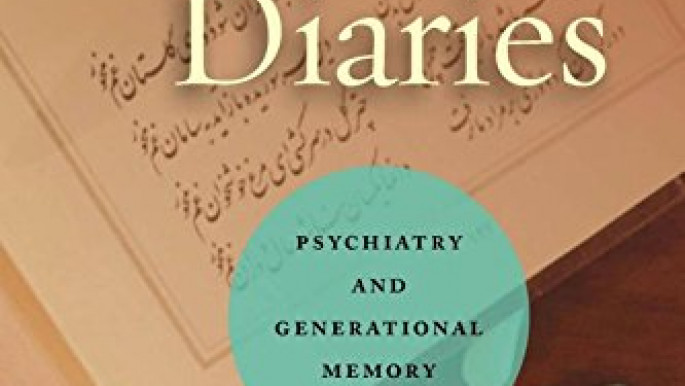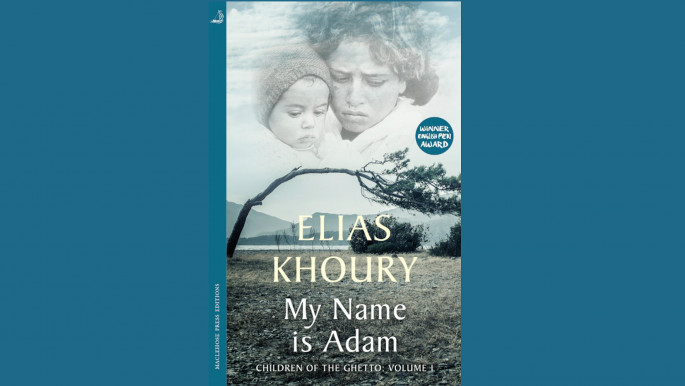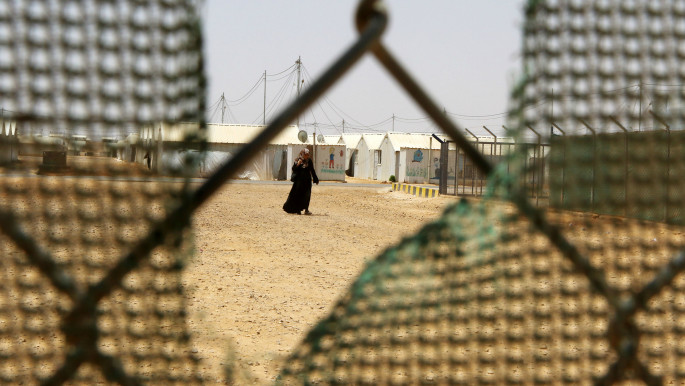Prozak Diaries: Psychiatry and generational memory in Iran
Behrouzan takes the reader through not only the lens of those working in the field, but the ones suffering themselves and how they describe their own experiences. This take on mental health is particularly unique when considering the scope of the narrative – a country rich in mysticism and poetic undertones.
Orkideh Behrouzan is a physician, medical anthropologist, and the author of Prozak Diaries: Psychiatry and Generational Memory in Iran (2016, Stanford University Press). Before joining the department of anthropology and sociology at the London School of Oriental and African Studies in 2017, she taught at the Department of Global Health and Social Medicine (GHSM) at King's College London. Prior to that position, she was an assistant professor of Medical Anthropology at the Institute for the Medical Humanities (IMH) at University of Texas. Behrouzan received her PhD in History and Anthropology of Science and Technology from Massachusetts Institute of Technology (MIT). She is a 2015-16 fellow of the American Council of Learned Societies (ACLS) and the winner of the 2011 Kerr Award from the Middle Eastern Studies Association.
Behrouzan divides the book into sections based on different perceptions (i.e. The Anthropologist, The Poet-Satirist, Freud, The Counsellor, The Student, The Blogger, The Mother and The Medical Intern). While an educational piece of literature covering medical and historical information, it also serves to tell the story of those interviewed.
 |
Behrouzan explains how a cultural shift took place in the 1990's, when the first Iranian terminologies within the field developed |  |
The Anthropologist: The introduction begins by delving into the methodology that will be used in her approach, who and what she will be investigating and how.
 |
|
The ethnography is discussed in detailing regarding how cultural aspects of the region influence the perception of mental illness and its attributes. She states how the discussion around mental health in Iran began online and offline, with people meeting in cafes or posting about it on their blogs.
It is emphasised that it may not necessarily have been a simple case of increased prevalence of psychological disorders, but rather a shift in the cultural perception of them, thus creating a more open environment that fosters dialogue. The questions the author proposes are as follows: How and when did this change come about? What was happening in the language? How do clinical terms inject themselves into our daily lives? What cultural work do they perform? How would doctors explain this shift in articulation and interpretation? And how had psychiatry as a discipline emerged and evolved in its Iranian context in the first place?
While mental health has become more destigmatised worldwide, each culture has its own context and unique experience dependant on their own traditions. The author stresses the importance of words and their effects when discussing such topics and explains how she will be telling the stories of those involved first-hand.
"It all began with words, why we choose them, how we use them, and what cultural forms they generate," she explains.
The Poet-Satirist: Behrouzan explains how a cultural shift took place in the 1990's, when the first Iranian terminologies within the field developed: afsordegi (depression), depreshen, dep zadan (becoming depressed), toroma (trauma), esteress (stress), bish-fa'ali (hyperactivity in children), and the Persianised catchall term for antidepressants, Prozak.
 |
Prior to the mass prevalence of mental health issues following the Revolution and War, psychiatric pathologies were primarily discussed in a different manner to how they are now – concealed, and in a poetic or religious language |  |
Prior to the mass prevalence of mental health issues following the Revolution and War, psychiatric pathologies were primarily discussed in a different manner to how they are now – concealed, and in a poetic or religious language.
This would stem from the culturally Sufi traditions and the Shia ethos of conduct, where something like stoicism was held in a high regard. This sort of demeanor was equated with "spiritual transcendence, unrequited love and unshaken faith". Additionally, within the field of medicine and science, psychiatry was seen as a 'lesser than' when compared to other practices.
While talk of mental health struggles began to take place in the media in the 1980's, it was the impact of the Iran-Iraq war (1980-1988) that truly created waves within society, as well as the economic sanctions imposed by Western governments following the war.
 |
|
| Read more from The New Arab's Book Club: My Name is Adam: Tribulations of an unfinished story |
Veterans and civilians alike were experiencing conditions such as PTSD and anxiety disorders, and later the focus shifted to concerns about depression and dysphoria. This is when a discourse began surrounding mental health (salamat-eravani), which aimed to destigmatise psychological disorders within society. Creating this dialogue enabled many individuals to make sense of their post-war emotions and provided them new tools to navigate them.
There is also an emphasis placed on the importance of difference in psychological frameworks between the East and West. Western categorisations of mental health are not necessarily a 'one size fits all' for the rest of the world. For example, in relation to loss, Behrouzan asks, "What if loss is not a singular event or of a loved one, but a prolonged sense of lament? And what if mourning for unrecognised losses has been stuttered over time? These questions are meant to draw attention to the clinical and cross-cultural intricacies of diagnostic appropriations". This brings up considerations such as generational trauma, and how different communities may experience this phenomenon whereas others do not, and the effect this has on people experiences varying levels of depression as a result.
Freud: In this section of the book, the author discusses the history of psychiatry in Iran, and how it developed and evolved with the influence of Western psychiatry. As within many societies, people with mental health disorders were treated along with the disabled – as those to be isolated from society who lived in extremely poor conditions.
The foundations of Iranian psychology stemmed out of what is now known as Ruzbeh Hospital in Tehran. What began as a strictly biological approach in the 30's and 40's later shifted toward a Jung perspective in the 60's and 70's with a rediscovery of Iranian mystical tradition, with a focus on 'returning to the self'. Later with modernisation taking place under the authority of Reza Shah Pavlavi (1878-1944), mental health institutions were included in an 'upgrade' and shifting of conditions for those housed.
French psychiatrists had a large influence on the approach used within the medical settings, with a focus on individuals' power and will. Behrouzan then walks the reader through the dynamics of psychiatry up to modern day, where a balance between neurology, biology, and the soul take place – a combination of psychiatry and psychoanalysis (brought by Iranians trained in the US).
 |
As within many societies, people with mental health disorders were treated along with the disabled – as those to be isolated from society who lived in extremely poor conditions |  |
The Counsellor: Roughly four decades after the initial focus on a Freudian approach in Iranian psychiatry, a website was created called moshavere.org (counselling), or the Centre for Counselling and Guidance at the Imam Khomeini Institute of Research and Education at the Qom Seminary (Hozeh-ye Elmiyeh). This resource served to combine psychological support with an Islamic approach to mental health.
When discussing psychological wellbeing, the site reads: The Quran has taught us that faith, unconditional faith, protects the soul. When one has faith, one doesn't fear anything or anyone other than the Almighty God (...) One of the cures the Quran recommends for tackling psychological disorders is connecting with other believers. Many psychotherapists have testified to the significance of human connections for one's mental health.
 |
|
|
Read also: 'The remedy of a soul': |
Further down the page, the site states that the best combination of treatment for depression and anxiety disorders would be psychotherapy and medication. The uniqueness of this approach is that it combines treating not only the personality, but the soul. This seminary utilising terms like 'depression' and 'bipolar' Behrouzan states, would have once been an unimaginable element of their teachings.
The Student: One of the most impactful aspects of the book I found, was when the author interviewed 28-year-old Samāneh, who suffers from depreshen. She recalls in her account, "Prozak helped me with my depreshen; I should have started sooner… How long do we want to insist on backward thinking? Don't you take antibiotics for an infection? It's the same thing; depreshen has its own medication; simple as that."
When speaking of the cafe where she met Behrouzan, she says, "I come here at least once a week. It's the only place I can sit alone at a table and no one bothers me. Injā hameh ham dardan! [we are all suffering the same pangs here]."
What was particularly fascinating to me was the way she spoke of the city of Tehran. "Everyone is depressed. It's as if someone has splashed gard-e marg on the city" (literally meaning, the "dust of death").
The Blogger: This section of the book begins with a letter to the author, by Neda, a 36-year-old blogger in Tehran. One excerpt from her piece is as follows: Western people think we must have had a miserable childhood! But I have a lot of good memories too! Most of us, at least in Tehran, were fine, thanks to those brave men who put their lives on the line for us… We got to have imaginary friends and play hide-and-seek away from the battlefield. We got to play with our classmates and fill the gap between missile attacks with cartoons and birthday cakes. I mean, of course, I remember the siren, the bombs, the funerals, the fear. But things kept changing, getting better and then getting worse again…. And here we are now; we will be the last generation to remember the war.
The remainder of the section recalls accounts similar to this, from young Iranians all over the world. Those in Iran as well as those who sought refuge in other countries – with a mass population being in Los Angeles, or, Tehrangeles (Little Persia).
While living in different environments, they all share a generational trauma from their experiences, that has made them subject to psychological unease later in life.
Combining their Persian roots with the digital age, a number of these children have taken up blogging as adults to share and disseminate their experiences to anyone open to listening. Thus, creating a sort of 'virtual cafe', similar to the real-life ones in Iran. A commonality noted among many of the subjects was their continuation of dreams bringing up these memories of their childhood, even if they didn't experience these intrusive thoughts in their waking life. Behrouzan discusses the important fact that, Western ideologies of trauma fail to encapsulate the contexts in which this group of people experience their psychological trauma.
The Mother: In 1998, the concept of ADHD became increasingly well known in Iran, as did its diagnoses. The author then goes to discuss her meeting with an Iranian couple in Tehrangeles, and their 10-year-old daughter Shirin who is being medically treated for ADHD. Only a decade prior, this behaviour likely would've been attributed to improper schooling, or simply a lack of fitting in or adequately performing.
 |
The author then goes to discuss her meeting with an Iranian couple in Tehrangeles, and their 10-year-old daughter Shirin who is being medically treated for ADHD. Only a decade prior, this behaviour likely would've been attributed to improper schooling, or simply a lack of fitting in or adequately performing |  |
Although many children tend to 'grow out' of their symptoms into their teen years, medication was pushed as a means to protect the child self-esteem and ability to integrate socially. Behrouzan continues in this chapter discussing the preconceptions and stigma surrounding ADHD, as well as the generational perceptions of the condition.
The Medical Intern: In the final section of the book, the author covers her experience as a medical intern in Ruzbeh Psychiatric Hospital in Tehran – the first and most historically significant facility in the history of Iranian psychiatry. She runs through and accounts the different methods of approaching psychiatric care, and when and how they all found their way into the Iranian practice. She delves into not only a comparative analysis, but a cultural one as well.
"Nostalgia and appreciation for this pluralism remind us that Iranian psychiatry has come a long way, and that it continues to negotiate the boundaries of its situatedness in the face of globalising forces".
Order your copy of Prozak Diaries: Psychiatry and Generational Memory in Iran here
Karsen Breanne is a freelance journalist and full-time mother based in London. She has a BSc in Psychology and a MSc in International Politics, and her interests include MENA Politics, Culture, Religion, and Psychosocial dynamics.
Follow her on Instagram: @karsbreanne
The New Arab Book Club: Click on our Special Contents tab to read more book reviews and interviews with authors:





 Follow the Middle East's top stories in English at The New Arab on Google News
Follow the Middle East's top stories in English at The New Arab on Google News


